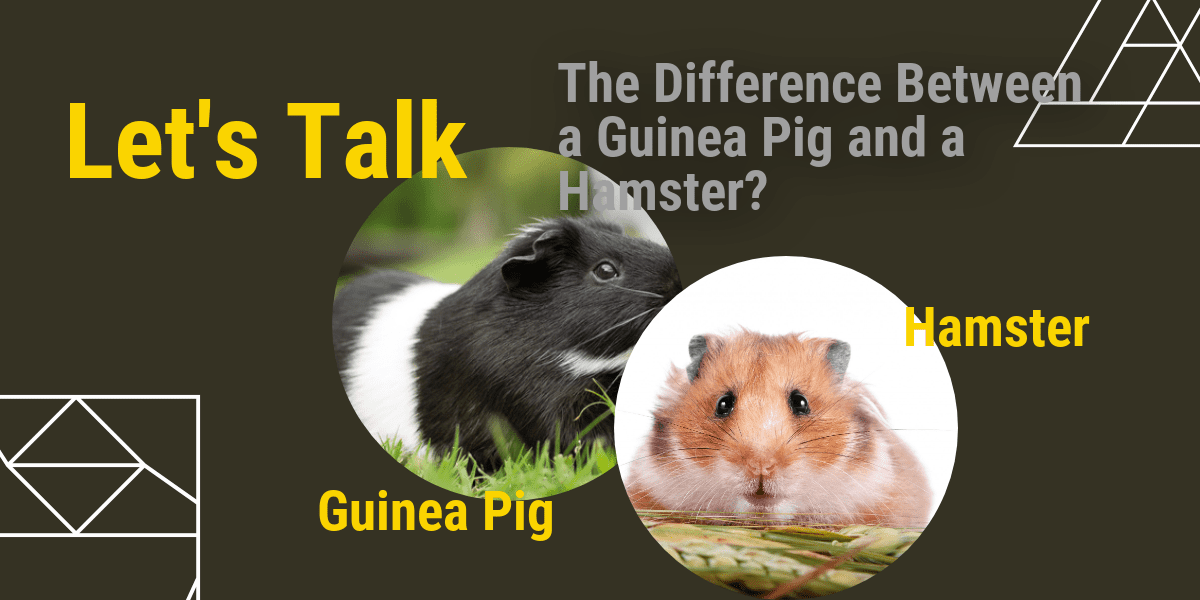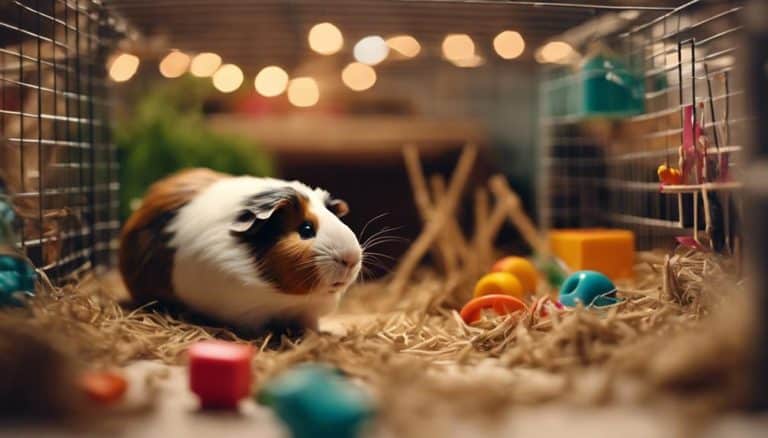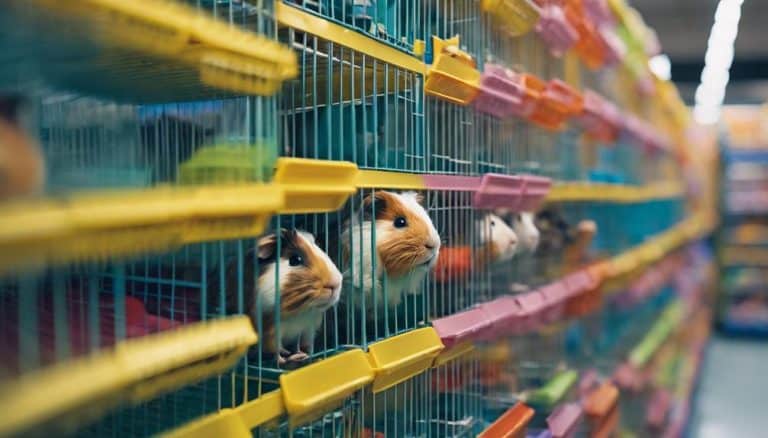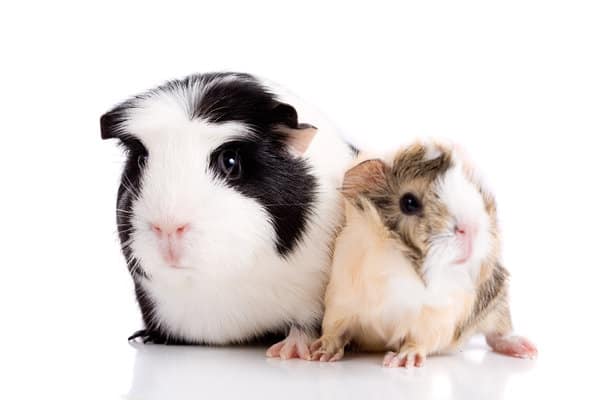What’s the Difference Between a Guinea Pig and a Hamster?
What’s the difference between a hamster and a guinea pig? Not much. They both belong to the rodent family and they have some things in common such as their small size, fast metabolism, curiosity, and intelligence.
But some important differences set these animals apart.
If you’re thinking about getting one of these as a pet but aren’t sure which one, keep reading to learn more about each type so you can make an informed decision.
Guinea Pigs
Are as Smart as Hamsters Guinea pigs are one of the most intelligent small pets you can have. They love to explore and they’re very curious, which means they make great pets.
They use their strong senses of smell and hearing to find food, water, and new environments. While hamsters are smarter in a lot of ways, guinea pigs are still much smarter than your average pet cat or dog.
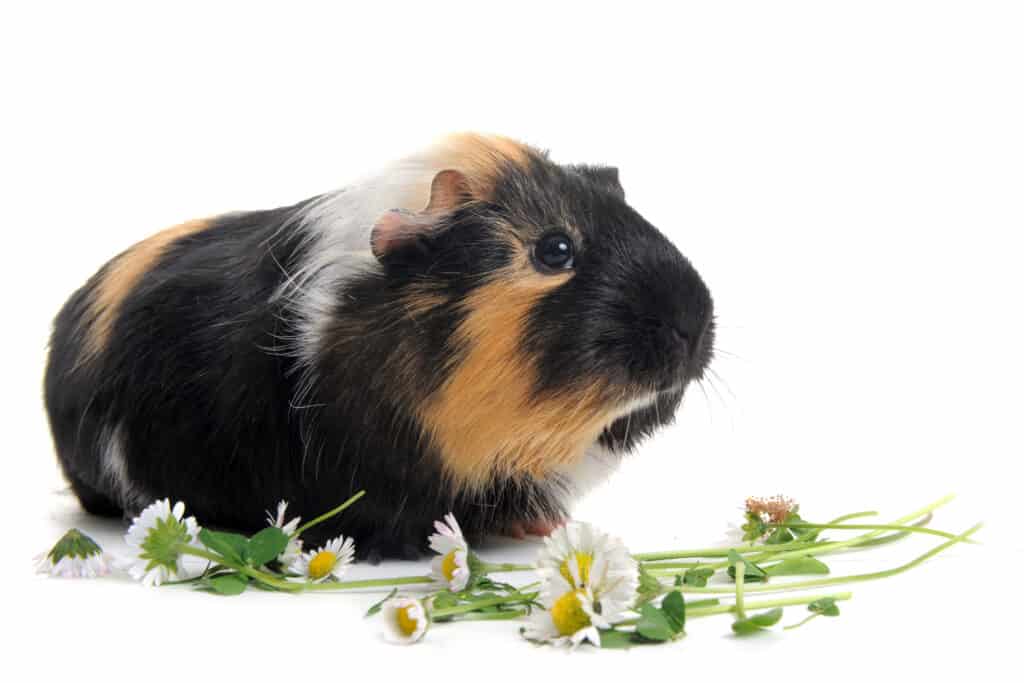
Hamsters
Hamsters are common pets because of their social nature and their short gestation period. They can become quite tame with a little bit of training, and they’re often very curious.
Their activity levels also make them an ideal pet for people who want to keep a small animal that still gets the full attention of its owner. They are often quite active but do require some food, water, and time to play.
Hamsters are not as hardy as guinea pigs so they tend to have shorter lifespans. Guinea pigs have a longer gestation period than hamsters (up to 21 days) making them less likely to be as prone to becoming tame or social with owners as hamsters are.
Although animals usually don’t require grooming like dogs or cats, guinea pigs do still need some time out of captivity. Guinea pigs also rapidly gain weight so owners should plan on providing them with food and water every day for the first few weeks after purchase if it catches on quickly that their new friend needs more care than expected.
However, unlike hamsters, guinea pigs don’t get nearly as excited about toys and games so they’re not ideal pets for children who might enjoy playing with animals more than they enjoy human interaction.
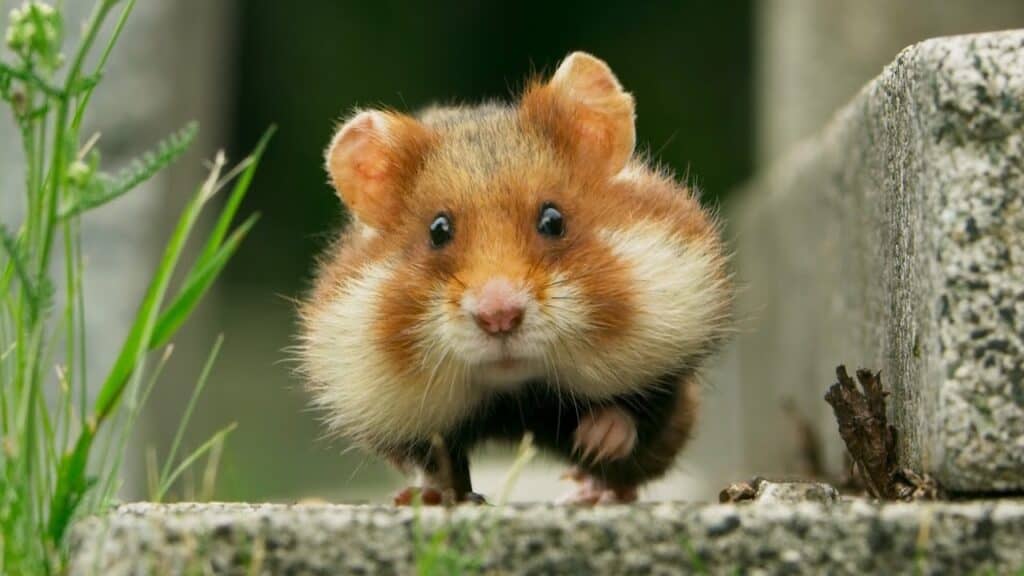
Care and Conditions
Guinea pigs and hamsters share the same care and conditions in terms of their diet and housing needs.
They can both be kept in cages, on wire floors, with litter boxes or hay. You should keep them out of direct sunlight so they don’t get too hot, but if they do, you should provide a dark-colored box for them to hide in.
Both animals also need access to fresh water at all times.
Hamsters also have larger eyes than guinea pigs and are relatively more active due to their constant curiosity.
Hamsters are also more intelligent than guinea pigs which makes them easier to train and less likely to escape their enclosure than guinea pigs tend to be.
Differences Between Guinea Pigs and Hamsters
A guinea pig is a small, furry rodent from South America with a long tail.
Hamsters are also rodents and they live in the deserts of central Asia.They have shorter tails which makes them look more like mice than guinea pigs.
These animals are similar in size and weight and they have similar dietary needs as well as water intake. One difference that sets these animals apart is that a guinea pig is prone to certain health conditions while hamsters are not.
A guinea pig’s risk of contracting pneumonia is higher than that of a hamster. Another difference is their temperament. Hamsters tend to be more docile while guinea pigs are cranky little animals that don’t make good pets for children because they can be aggressive and bite when stressed or threatened.
This might make them the right animal for you if you’re hoping to get an animal that will keep your kids busy but don’t want them to get hurt by an animal that could potentially bite them.
Guinea pigs also do not make good pets for people with asthma since their fur can cause irritation for some people who suffer from this condition.
There’s one last major difference between these two rodents: their diet! Hamsters eat seeds, greens, hay, and other plant matter while guineas generally eat fresh vegetables or fruit along with hay and seed mixes so they need different food sources to stay healthy.
Hamster vs. Guinea Pig: Which Is Best?
Hamsters are known for their long, bushy fur. They come in a variety of colors and are most popular as pets in colder climates because they can regulate their core temperature.
Some other scientific names for hamsters include the Syrian hamster, the golden hamster, and the desert or Abyssinian hamster.
Guinea pigs are smaller than other members of their family but are still rodents. There’s no such thing as a purebred guinea pig; they’re all mixed breeds and have many variations in size, coat type, color, and so on.
The most common name for these animals is the cavy or cavies. Which pet should you choose? If you’re looking for a pet that’s small yet agile, then the guinea pig is the right option for you.
But if you want something that will provide more exercise than a guinea pig can offer, then go with a hamster.
Whether it’s weighing up your options or just getting to know these two better, this article has some helpful information to help make an informed decision about which type of rodent is best for your needs!
Should You Get a Guinea Pig or a Hamster?
The first question you should ask yourself is whether you want a rodent that lives indoors or one that lives outdoors.
Guinea pigs tend to live in cages and hamsters can roam freely throughout your home or yard.
If you want a pet who is easy to care for and will be less of a headache than other animals like dogs, guinea pigs are the way to go.
But if you’re looking for an animal to bond with, hamsters make better companions because they are more social and active. If you decide that you want a guinea pig, there are some important factors you should consider.
First, they need to be housebroken so they don’t create any messes inside your home.
Guinea pigs also need an exercise wheel that is large enough for them to run on so they can stay fit and healthy.
These rodents also require hay feeders and water bottles so they have things to do when they are bored or thirsty during their free time. Additionally, these animals require a lot of attention so it would be best if you had another person around who could provide the guinea pig with company when it’s lonely at home alone during the day.
If you decide that you want a hamster, this type of pet requires more time and attention than a guinea pig does because hamsters are naturally much more active and curious than guinea pigs are.
Hamsters do not get along as well with smaller pets like other hamsters or other types of small rodents like mice because they feel
Conclusion
In conclusion, both guinea pigs and hamsters make amazing pets. Whether you want a cuddly companion or an entertaining rodent, these furry friends are sure to bring joy and fun into your life.
While they have some similarities, it’s important to remember that each of these animals require different care. So before choosing a pet, be sure to do your research and find out which one is best for you.
With the right knowledge and preparation, you can ensure that your little friend will have a happy and healthy home with you!

